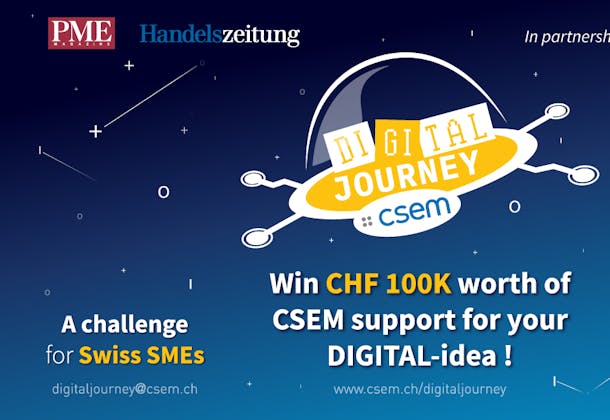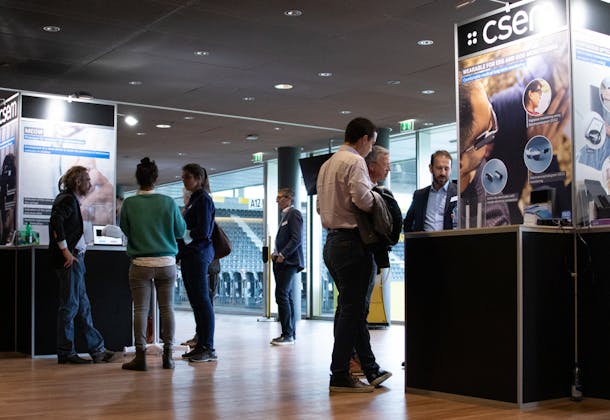Victory for Gait Up and Definition12
CSEM has announced the two winners of its 2020 Digital Journey award: Gait Up, based in Renens in the Canton of Vaud, and Definition12, based in Reinach in the Canton of Basel-Landschaft. These two healthcare SMEs will each receive CHF 100,000 in technological support from CSEM’s digital experts.
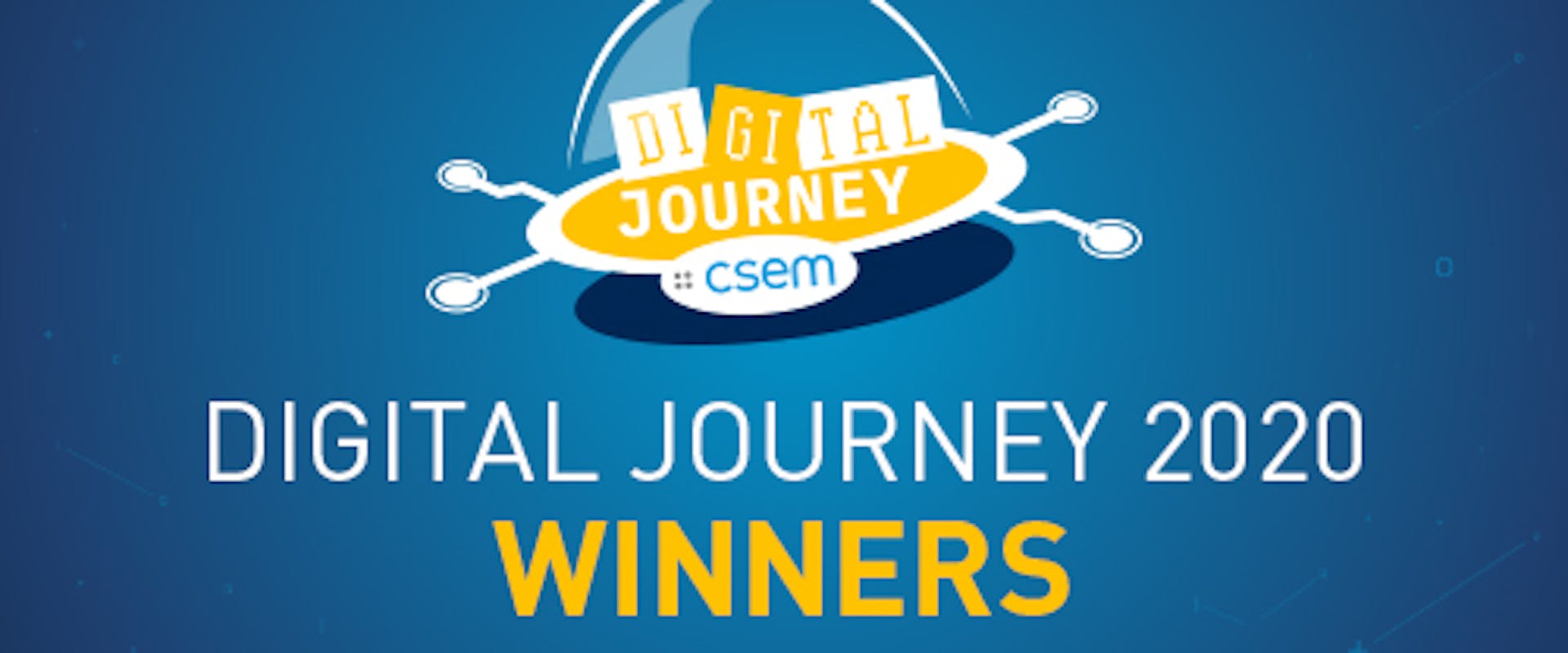
Gait Up provides systems that use sensors and algorithms to analyze gait disorders, while Definition12 has developed a new therapeutic app for aphasia patients. These companies were selected for the major potential impact of their technology on society. The awards were handed out during a ceremony hosted jointly by CSEM and EPFL on 9 March.
To help bolster Switzerland’s SMEs, which have been hit hard by the Covid-19 pandemic, this year CSEM decided to give its Digital Journey award to two Swiss SMEs rather than just one. The two winners are Gait Up and Definition12, both of which are active in medical technology. The selection panel chose these two companies based on their excellent presentations and their high potential impact on society.
The winners will each receive CHF 100,000 in customized technological support to further develop their digital technology, drawing on CSEM’s wide range of skills and experience to speed the launch of their digital products.
Correcting gait disorders
Gait Up was founded as a CHUV and EPFL spin-off in 2013. Its proprietary system uses wearable sensors, advanced algorithms and biomechanical expertise to analyze irregularities in the way a patient walks. The company plans to work with CSEM to develop and test new algorithms allowing for a more detailed assessment of gait disorders resulting from a stroke, Parkinson’s disease or cerebral palsy, for example. The expertise provided by CSEM engineers will allow Gait Up to shorten the time to market for its system, giving doctors a valuable new tool for therapeutic evaluation and diagnostics.
Using artificial intelligence to treat aphasia
The app developed by Definition12 helps treat speech impairment, or aphasia, by coaching patients through therapeutic exercises they can conduct at home. The app is designed to be fun to use and to provide personalized feedback as the patient progresses. It works with the help of artificial intelligence, linking sounds to facial expressions so that patients can learn to speak again. With CSEM’s support, Definition12 plans to develop a large-scale system that translates therapists’ facial expressions into several languages and dialects.
Supporting SMEs
“SMEs are the backbone of our economy. We introduced the CSEM Digital Journey award in 2018 to support them in their digital transformation and help them remain competitive in an increasingly challenging market climate.” – Alexandre Pauchard, CEO of CSEM
The award is open to Swiss companies with fewer than 250 employees and which may not have the human and financial resources to meet the challenges of digitalization.
Award presented to Gait Up. From left to right: Georges Kotrotsios, member of the CSEM Executive Board; Alexandre Pauchard, CEO of CSEM; Cléo Moulin, Clinical Innovation Manager, Gait Up; and Bahaa Roustom, Deputy Head of Marketing, CSEM (photo credit: Patrick Di Lenardo)
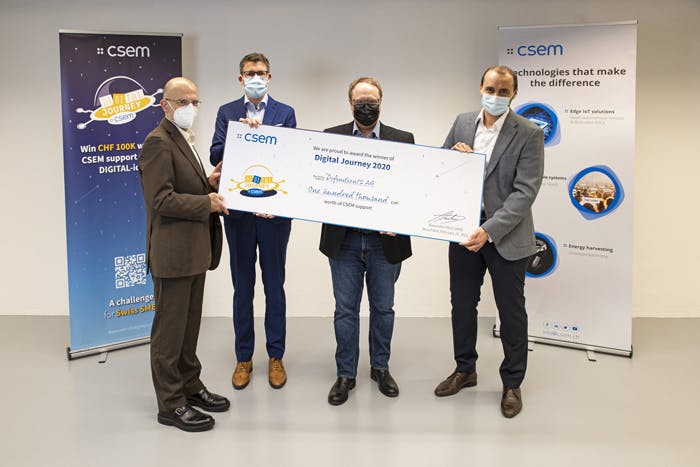
Award presented to Definition12. From left to right: Georges Kotrotsios, member of the CSEM Executive Board; Alexandre Pauchard, CEO of CSEM; Beat Gersbach, CEO of Definition12; and Bahaa Roustom, Deputy Head of Marketing, CSEM (photo credit: Patrick Di Lenardo)
Selection panel
- Chairman: Georges Kotrotsios, member of the CSEM Executive Board, in charge of marketing and business development
- Silvio Bonaccio, Head of Technology Transfer, ETH Zurich
- Nicolas Bürer, Managing Director, digitalswitzerland
- Marc Gruber, Vice President for Innovation, EPFL
- Raphaël Rollier, Head of Innovation and Product Management, Swiss Federal Office of Topography
- Robert Rudolph, Member of the Swissmem Executive Board, in charge of digitalization and innovation
- Christian Wasserfallen, Swiss Federal Councilor
The winners and their companies
Gait Up, based in Renens in the Canton of Vaud, was founded as a CHUV and EPFL spin-off in 2013. Its motion analysis systems combine wearable sensors with algorithms and biomechanical expertise. The firm joined MindMaze, an advanced neuroscience and digital therapeutics company, in 2017.
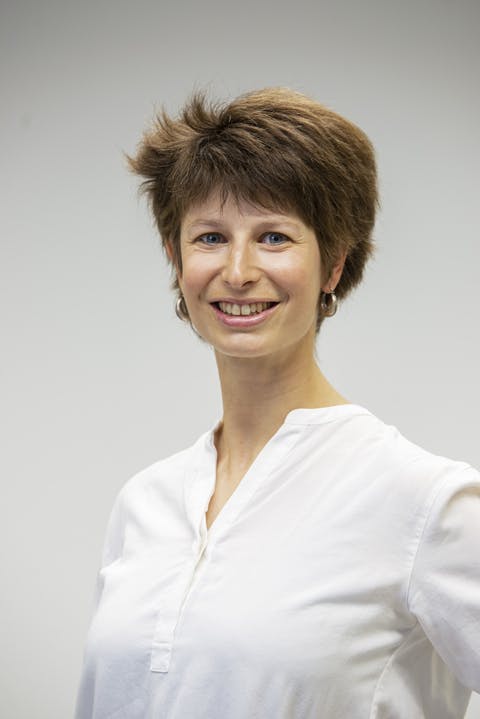
Company mission: Over a billion people around the world have trouble walking. Gait Up has developed a novel, low-cost system that can perform detailed assessments of gait disorders and help doctors determine the best treatment and physical-therapy protocols, without needing to perform the standard laboratory analyses. Its system, called Kinemagics, consists of a set of three wearable sensors that are attached to a patient’s feet and pelvis. The sensors, equipped with accelerometers and gyroscopes, are used to measure the body’s movements. They are connected to an extensive research-grade library of algorithms for processing the data and generating complete measurements of the patients’ key gait parameters to aid in clinical evaluation. With CSEM’s support, Gait Up plans to enhance its state-of-the-art motion algorithm for lower-limb joint angle measurement during the gait activity and test it on pathologies such as stroke, Parkinson’s disease, cerebral palsy and hip and knee arthritis. CSEM’s contribution will speed the development of a new demonstrator, which is expected to obtain the CE label and FDA approval in 2022.
Definition12, founded in 2000, develops healthcare apps for smartphones and tablets. Its first series of apps was focused on issues including emergency care and breast cancer, but it has more recently been working on one that allows stroke victims to perform certain types of physical therapy at home.
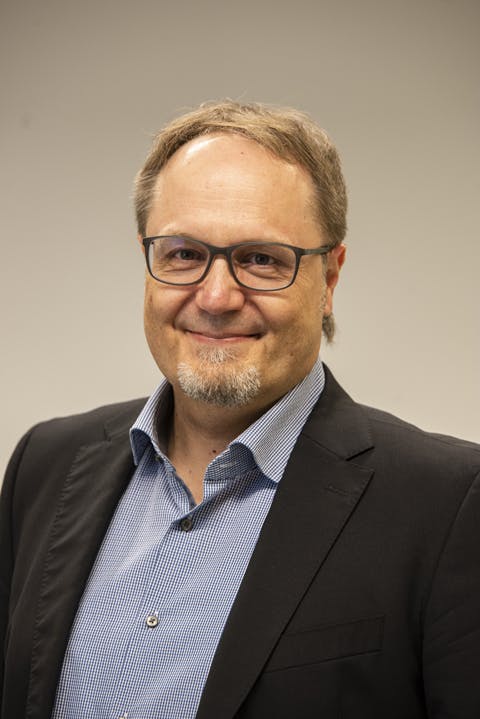
Company mission: 70,000 people in Europe suffer from speech impairment, or aphasia, every year, usually following a stroke. Definition12 has developed an app that allows aphasia patients to perform individual, personalized, and supervised therapeutic exercises at home, helping to restore their speaking ability. The app, called Aphasia, has been clinically tested and is available for iOS and Android tablets.
It works in part by displaying short videos in which a therapist recites words and sentences. The patients can hear the therapist and, by watching the corresponding facial expressions, see how the words should be articulated. At the same time, an artificial intelligence algorithm analyzes the patient’s voice and provides qualified feedback to both the therapist and patient. This allows therapists to continuously adapt patients’ exercises, and allows patients to hear and correct their own speech deficits. With CSEM’s support, Definition12 plans to develop new artificial intelligence algorithms for translating therapists’ voices and facial expressions into several languages and dialects, in order to help aphasia patients around the world learn to speak again. A market-ready version of the app should be available two years after the development work begins.

